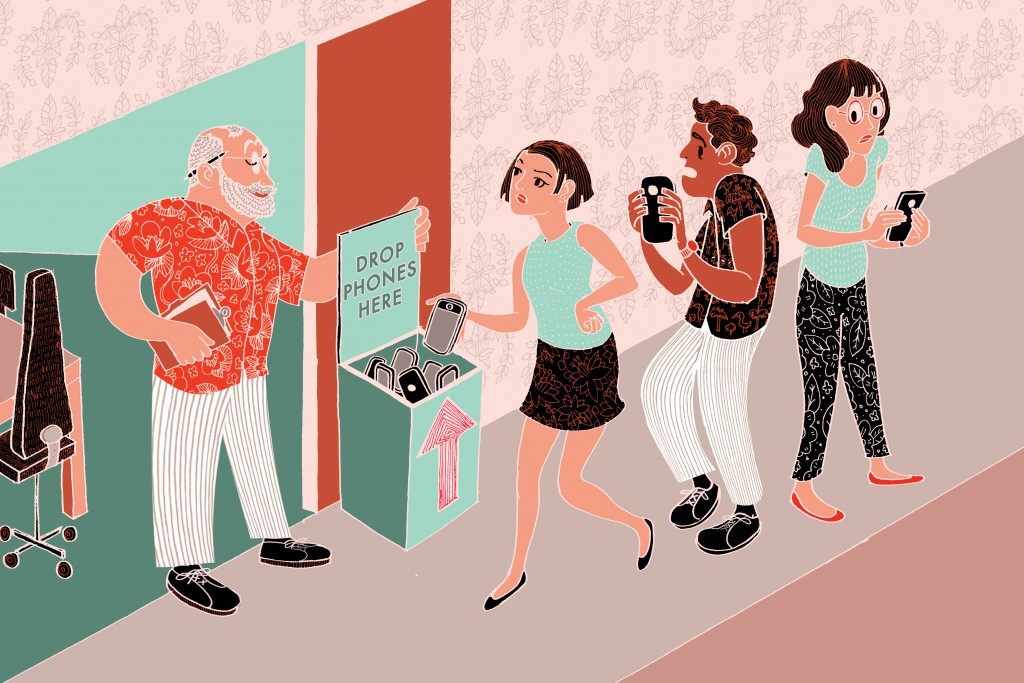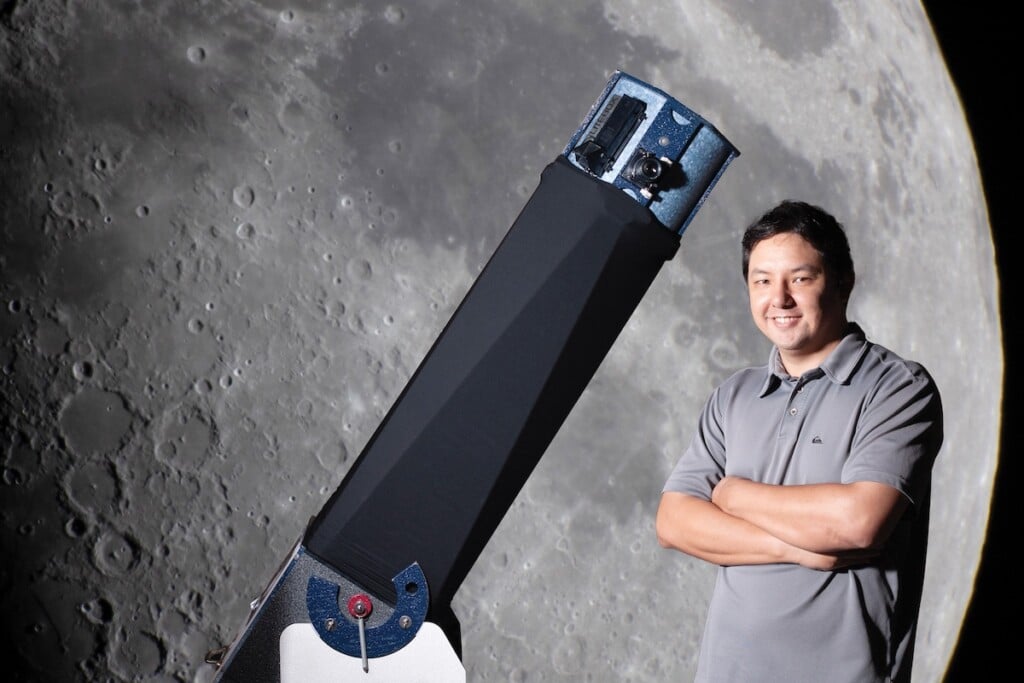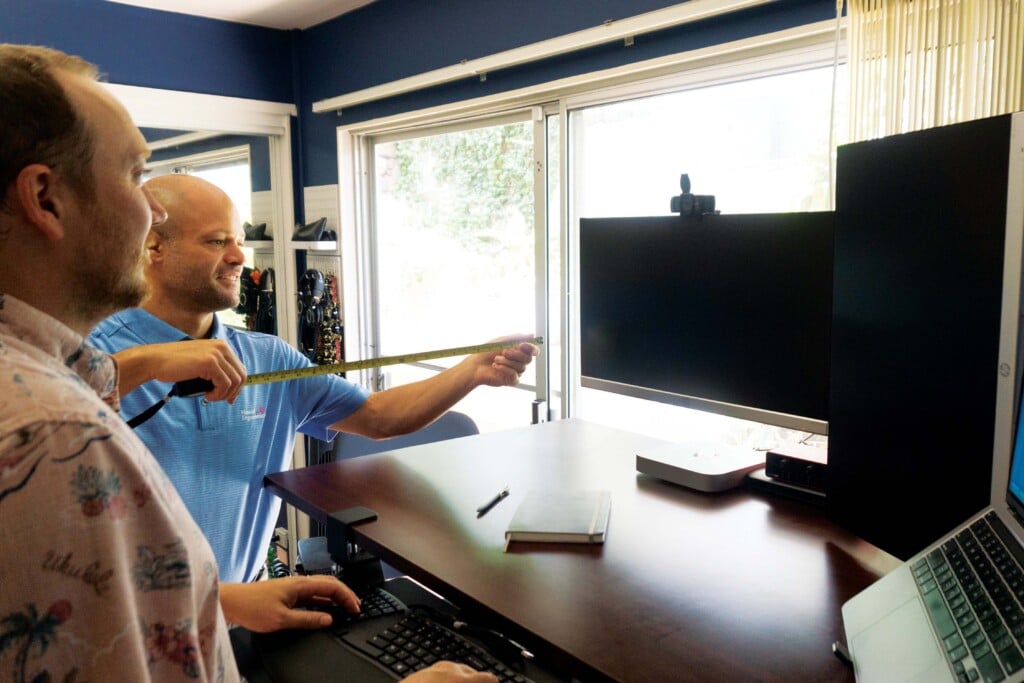The Careerist: You’ll Live, Despite No-Phone Meeting

Q: I run weekly team meetings with our field staff so we can stay abreast of everyone’s projects, deadlines and possible crossovers. It’s one hour, and I try to run a tight agenda that covers all the ground without bogging down. My problem? Everyone brings their phones! Folks are constantly texting, stepping out to take calls and checking email. I know everyone’s busy, but can’t we dedicate one hour a week to a phone-free zone?
A: When did it become standard protocol to bring a pen, a notebook and a smartphone to every meeting? I feel your pain, because I’m just old enough to remember when phones were attached to cords and sat on your desk.
Regular readers know I’m a fan of technology in the workplace. Mobile phones have revolutionized productivity. Text messages take a fraction of the time traditionally spent on phone calls, and having your email, files and documents in your pocket means you can work from anywhere. But just because you always can doesn’t mean you always should. Like everything in life, it’s about balance.
Here’s the dirty secret of those ubiquitous phones attached to the palms of our hands: We’re addicted. Research continues to confirm what we instinctively know – that buzz, beep or ping releases dopamine in our brains, which causes a surge of excitement and curiosity that draws us to the phone over all else. Simon Sinek, author of Start With Why, TEDx star and management consultant for power houses like Disney, says, “If you show up at a meeting and put your phone on the table, it says to the rest of the people that they are not the most important people in the room.” And like he has a window into my soul and sneaky habits, he continues, “By the way, turning your phone upside down is not more polite.”
My aha moment on this point came when I interviewed Micah Kane, the new CEO at the Hawai‘i Community Foundation. I’d expected our interview to be postponed because Kamehameha Schools was in the news that morning, and Kane is one of the school’s trustees. Not only did the interview proceed as planned, but Kane showed up without his phone anywhere in sight. We sat and talked story for over an hour, without a single beep, buzz or ping. It may have been the most productive interview I’ve ever conducted.
Kane’s not alone in this leadership trend to leave the phone behind. Mike O’Neil, chief executive of the music rights management behemoth BMI, demands that his team turn off their phones or leave them behind for meetings. “It’s like sitting on the lifeguard stand,” he told the New York Times’ Corner Office columnist. “You could focus for an hour.”
This weekly shindig is your meeting, so, for that hour, you’re the boss. Act like it. Leave your phone behind and request everyone else do the same. Do what O’Neil does and ask at the start of the meeting if anyone has an emergency in play that needs their attention and, if so, ask them to step out and attend to it before joining the meeting. They may not like it at first, but they’ll begrudgingly oblige. Who knows, they might find out they like it, your meeting will be more productive and maybe even shorter. And couldn’t we all use shorter meetings?
Q: I went to work this morning knowing I had a meeting with my boss, but I never expected I’d leave with all my belongings in a box. She fired me! She said I did not deliver as she’d hoped, and that, with new clients coming in, she needed her team at full speed. I admit I’ve been distracted at work, and I never really loved the job, but she fired me! I’m not someone who gets fired! What do I do?
A: Yep. Looks like she fired you. Apparently she didn’t get the memo that you’re not someone who gets fired. Before you implode from indignation or wallow in self-pity, remember this: It happens. According to the Bureau of Labor Statistics, an average of 54,549 people were laid off or fired each day of 2016, with private-sector workers three times more likely than government workers to get the ax.
Most Americans believe their bosses must have really good reasons to fire them. The truth is not so much: 49 of the 50 states have no laws requiring just or reasonable cause for termination, and private-sector relationships fall under the employment-at-will umbrella – meaning goodbye is as easy as hello. (In case you’re wondering, Montana is that one-off state, so, unless you prefer big sky over big sea, you’re out of luck.)
What do you do now? First, don’t make a big deal out of it. Everyone loves a tale of intrigue and misfortune, so when you call your friends and relatives to tell your version of The Devil Wears Prada, you give the story oxygen. Pretty soon, everyone knows you got fired, and the salacious details that emerge may surprise even you. Instead, take a deep breath and find your inner resilience. Spend a couple of days processing what happened. Jumping right into a job hunt with a new resume and a fevered pitch can be a mistake, according to most recruiters, since you’re likely to sound desperate and may take the first thing that comes along.
“Everyone deserves a grieving period,” says Kate Kemp, author of the “Life After Layoffs” series on Monster.com. A friend of mine who recently found himself in your shoes didn’t even tell his closest friends for a few days. Instead, he went to the beach, went hiking, discovered what visitors already know – there are a lot of ways to soothe your soul in Hawai‘i.
When you’re ready, polish that resume, start networking and rebrand yourself to get the job you want. Do an honest assessment of your previous job (Why were you distracted and what didn’t you like?) so you don’t make the same mistakes again. Figure out your 30-second elevator pitch to explain what happened in your previous job, and practice until it’s perfect. You are more than that one firing, and most prospective employers will understand that. Be honest and truthful without making it the centerpiece of an interview.
Like all of life’s mistakes, learn from it and move on. Start over. Do better. Now you are someone who got fired, and that’s OK. Remember, Apple fired Steve Jobs, and it worked out. Get that new job, the one you’ve always wanted, and never forget what it felt like carrying that box to your car. It’ll make you a better employee, and a better boss someday.






